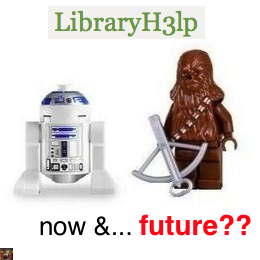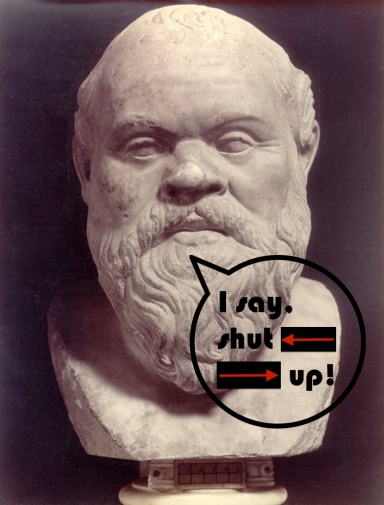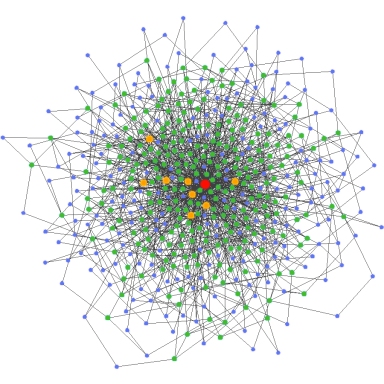I’ve been collecting some fantasies on improvements to the LibraryH3lp virtual reference service that we use for Ask-A-Librarian at NYU. Here are some of my favorite ones (that I can recall) right now:
- The most disappointing part of AAL right now: accidentally dropped chats, which suspend the patron & the librarian in mid-query. If I could get any of the improvements on this list, this is the most important and relevant one. Is there a way to automatically pop-out the chat windows of our users when they contact us? Or offer a link that opens a new, distinct chat window in which the AAL service can take place? It’s a consistent problem and certainly the most unfortunate. I used to keep track of the number of unintentional drops (at least, insofar as they appear to be accidental) and, sad to say, it often came surprisingly close to the total number of completes. 😐 :S :#
- Without citing specific numbers, I know that one of the most common queries posed to Ask-A-Librarian [AAL] via IM or Chat is information re: access hours to the library and various departments. I wonder if there is a way to feature a more prominent FAQ that offers links to regularly-requested information on the AAL page. Perhaps, it would even be possible to feature a dynamic list of topics, such that the most common or most recent questions would appear near the top of the list. DISCLAIMER: I do not claim to be a programmer and have no idea how feasible this is; please indulge my imagination.
- AAL is currently set up as a window or tab in my internet browser where I receive chats and SMS messages; in order to investigate a specific problem or discover certain information, it is necessary to jump to a different window/tab, and jump back to relay the new information. This makes for an interruptive and frustrating experience, on both sides of the interaction, I imagine. I would love to see a feature that offered simultaneous browsing & chatting, where I can browse the web and chat with AAL patrons at the same time. Kind of like Facebook messenger, I imagine (but with much less threat of surveillance, obviously). DISCLAIMER: Again, I know that I am clueless about how to propose creating this browser widget-plugin-javascript-thingy, or how to make it compatible with various internet browsers (although I imagine the best ones are the more “open-source friendly” Mozilla Firefox or Google Chrome). But can someone at least tell me what I should call this kind of hovering, multi-tasking software thingy? A bookmarklet? An application? I feel like I shouldn’t have graduate library school without knowing this…
- Speaking of social media, why not create Facebook and Twitter profile/page for NYU-AAL? Although this would likely add alternate or extra queues to monitor, it also seems like it a good opportunity to regularly interact with users who prefer that medium, as well as publicly offering access to past interactions of the AAL service. Notably, this information would no longer be anonymous, as it is in LibraryH3lp, but some users might forgo the need for anonymity to engage and save records of their questions. The benefits of extending AAL to social media seem evident: publicly recording questions and displaying relevant answers, as well as cataloguing information resources for the benefit of anyone who may not be actively following along.
- What is the sound of one librarian not talking? A deadly, stupefying, enervating silence, and not in any way profound. Wouldn’t it be nice to have a LibraryH3lp radio feature, like HypeM or Pandora, that would play in the intervening silence and during ongoing chats, perhaps briefly muting whenever new chats come in to recenter your focus? Or perhaps even better: a Zen soundscape with dripping water, knocking logs, and maybe even some birds or frogs? I really enjoy some of the ambient soundscapes that OmWriter uses to facilitate concentration and focus…and maybe somewhere in the future, someone who knows members of Sigur Ròs will ask them to compose some epic, infinite loop that would make my regular AAL session into an even more stimulating experience. [:\o ya!/}
- Every time a new message comes in to AAL, it activates that distinct and oh so disturbing “ping” noise that I can only roughly characterize as the sound that I’m about to be attacked by a nuclear submarine. Plz Plz Plz #KillThePing! For the sake of our sanity, let’s at least make a little less harsh. Apple’s operating software is especially well-designed in this respect: think of the “bmp” noise that occurs when a notification window pops up or the humble “click” of the keyboard volume control. Skype & Facebook have generally good notification sounds as well, and while it doesn’t matter what exactly we choose, we gotta find something that sounds less like being suddenly ambushed by R2-D2.
thx,
tSL



















